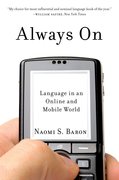Carlson receives patent for Xerography
This Day in World History – Chester Carlson had everything he needed to invent a xerography machine, or photocopier. He had been interested in printing and chemistry since childhood. He perceived a need—in his job, he found that he always needed more copies of documents than he could obtain cheaply. He reasoned that other businesses would also love to have a way of copying documents inexpensively. He had incentive to invent—he had just gotten married and did not think his job offered much chance for getting ahead. Finally, he had an inspiration.








